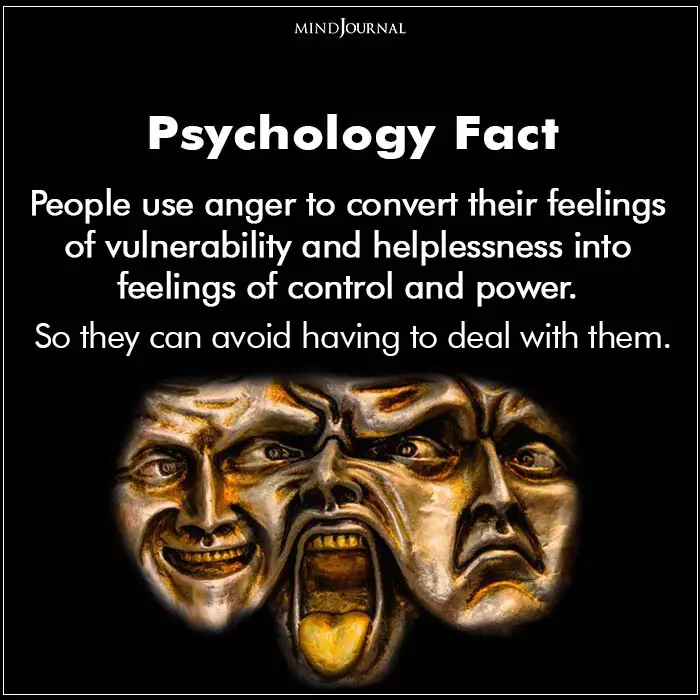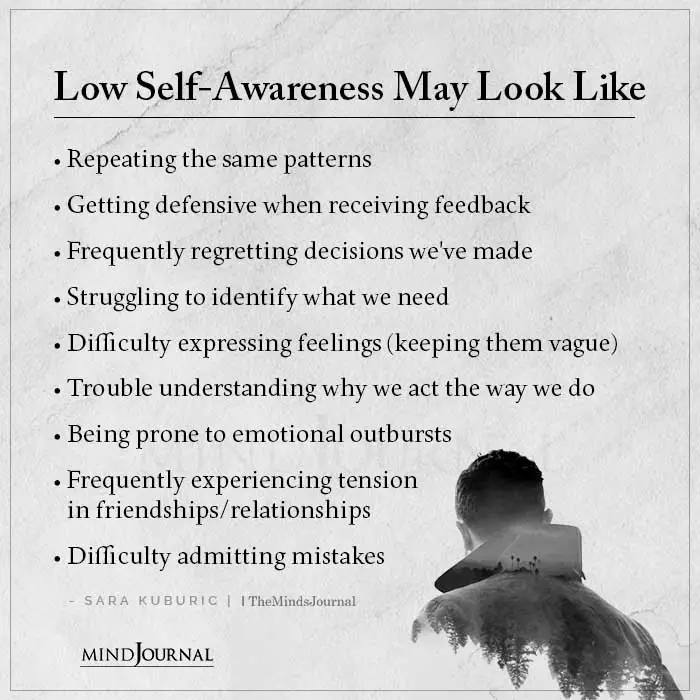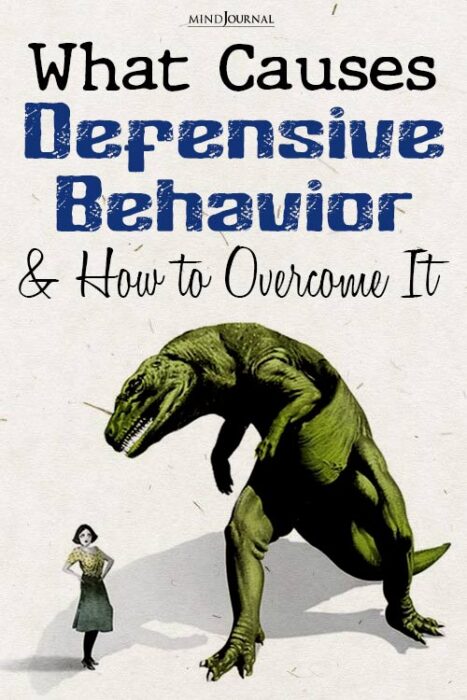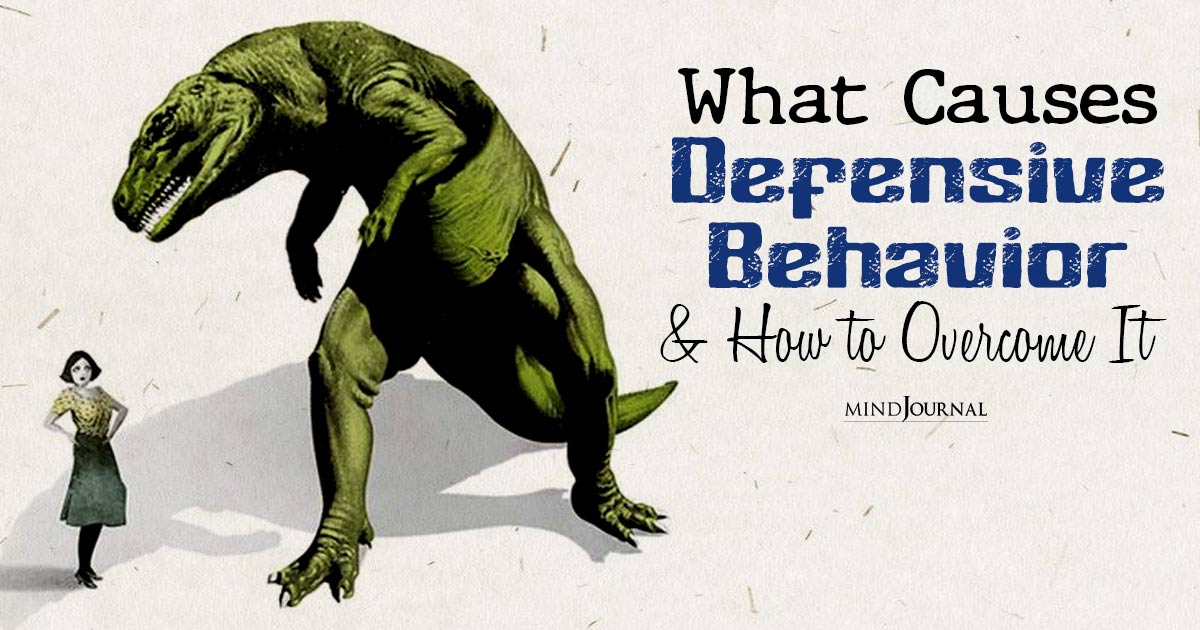Have you ever been in a situation where you felt attacked or criticized, prompting you to instinctively put up your guard? We’ve all been there. But what causes defensive behavior? And how to be less defensive?
While some people tend to be defensive by nature, defensive behavior, in general, is an instinctive response that arises when we perceive a threat to our self-esteem, beliefs, or actions. It’s like a protective shield that shields us from potential harm or emotional discomfort.
Let us dive into the depths of defensive behavior, exploring its characteristics, identifying the signs of being defensive, and unraveling strategies for dealing with a defensive person.
What is Defensive Behavior?
Defensive behavior encompasses a range of actions and reactions we employ to protect ourselves from perceived threats or attacks. According to a study, defensive behavior is a prosocial behavior that can be defined as “a behavioral response to threatening situations for survival and body safety of oneself and others.”
It is an instinctive response triggered when we feel our self-image, ideas, or actions are being challenged or undermined. Defensive behavior serves as a shield, guarding our vulnerabilities and warding off potential harm.
Related: 12 Truths About Defensive Behavior
However, some individuals tend to be habitually defensive. A defensive person is usually hypersensitive to criticism or perceived threats and may often react with hostility or withdrawal.
A defensive person may have developed this behavior as a coping mechanism, utilizing it as a means of self-preservation.
Now that we have a better understanding of what defensive behavior is, let’s have a look at the signs of being defensive, what causes defensive behavior, how to be less defensive and some helpful tips for dealing with a defensive person.

Signs of Defensive Behavior You Must Know About
Recognizing defensive behavior in ourselves and others can be enlightening. Here are some common signs of being defensive to look out for:
1. Overreaction
When a person reacts disproportionately to criticism or minor challenges, it may indicate defensiveness. Even constructive feedback might be met with an exaggerated response.
2. Denial and Avoidance
Defensive individuals often deny or avoid accepting responsibility for their actions or shortcomings. They may deflect blame onto others or use avoidance tactics to dodge uncomfortable situations.
3. Counterattacks
A defensive person may resort to counter-attacks when feeling threatened. Instead of addressing the issue at hand, they may attack the other person’s credibility or launch personal attacks.
4. Rationalization
Individuals exhibiting defensive behavior often rationalize their actions or beliefs excessively. They may create justifications to protect their self-image or to maintain consistency in their worldview.
5. Selective Listening
Defensive behavior can manifest as selective listening, where a person filters out information that contradicts their beliefs or challenges their self-perception. This selective attention helps reinforce their existing ideas.
Related: How to Listen Without Getting Defensive
What Causes Defensive Behavior
Understanding the root causes of defensive behavior can provide valuable insights into why we and others react defensively. Here are some key factors contributing to defensive responses:
1. Fear of Failure
One primary cause of defensiveness is the fear of failure. When our self-worth is closely tied to our achievements, any perceived criticism can be interpreted as a threat to our competence, triggering a defensive response.
2. Insecurity and Low Self-esteem
Individuals with low self-esteem are more likely to exhibit defensive behavior. They may feel a constant need to protect themselves from perceived attacks on their self-worth, often resorting to defensive tactics to preserve their fragile confidence. This is what causes defensive behavior,
3. Threats to Identity
When our core beliefs, values, or identity are challenged, we may respond defensively. Our identity forms a significant part of our self-concept, and any threat to it can activate our defense mechanisms.
4. Lack of Emotional Regulation
Poor emotional regulation skills can contribute to defensive behavior. When individuals struggle to manage their emotions effectively, they may resort to defensive responses as a way to protect themselves from experiencing emotional discomfort.
5. Past Traumatic Experiences
Past experiences of trauma or emotional wounds can make individuals more prone to defensiveness. They may have developed defensive behavior as a survival mechanism to shield themselves from further harm.
6. Learned Behavior
Defensive behavior can also be learned through observation and imitation. If individuals have been exposed to defensive role models or have witnessed defensive behavior being rewarded, they may adopt these patterns themselves.
Related: How Can I Stop Being Defensive? 8 Practical Tips For Effective Communication
7. Lack of Trust
When trust is absent in a relationship or environment, defensive behavior often arises. Individuals may feel the need to protect themselves due to a lack of faith in the intentions or actions of others. This is what causes defensive behavior in relationships.
Tips for Dealing with a Defensive Person
Dealing with a defensive person can be challenging, as their reactions and responses may often seem irrational or disproportionate. However, with patience, empathy, and effective communication strategies, it is possible to navigate interactions with defensive individuals.
Now that we know what causes defensive behavior, here are some tips for dealing with a defensive person:
1. Remain Calm and Composed
When faced with defensiveness, it’s important to stay calm and composed. Avoid responding with aggression or defensiveness yourself, as this will likely escalate the situation. Instead, take a deep breath and approach the conversation with a level-headed mindset.
2. Choose the Right Time and Place
Timing and environment play a crucial role in addressing defensive behavior. Find a suitable time and private setting where both parties can engage in a conversation without distractions or interruptions. Creating a safe space for open dialogue can encourage the defensive person to lower their guard.
3. Use Non-Threatening Language
The choice of words can significantly impact how a defensive person responds. Frame your statements and questions in a non-confrontational and non-accusatory manner. Use “I” statements to express your thoughts and feelings, emphasizing that you are sharing your perspective rather than attacking theirs.
For example, instead of saying, “You always get defensive when someone criticizes you,” try saying, “I’ve noticed that sometimes I feel hesitant to provide feedback because I’m concerned about how it might be received.”
4. Practice Active Listening
Practice active listening to demonstrate your genuine interest in understanding the defensive person’s point of view. Give them ample space to express themselves without interruption.
Maintain eye contact, nod, and provide verbal cues to show that you are actively engaged in the conversation.

5. Show Empathy and Validation
Defensive behavior often stems from underlying insecurities or fears. Try to empathize with the defensive person’s emotions and validate their feelings. Acknowledge their perspective, even if you don’t agree with it, to create an atmosphere of mutual respect.
For example, you could say, “I can understand why this situation might be challenging for you. It’s completely normal to feel defensive when we feel criticized or attacked.”
6. Focus on Solutions
Shifting the conversation towards finding solutions rather than dwelling on blame or criticism can be helpful. Collaboratively explore alternatives and work together to address the underlying issues. By focusing on problem-solving, you can redirect the defensive person’s energy towards constructive outcomes.
7. Set Boundaries
While it’s important to approach the conversation with empathy, it’s equally vital to establish and communicate your boundaries. Express what is acceptable and unacceptable behavior in a respectful manner.
Setting boundaries helps create a framework for healthy interactions and encourages the defensive person to reflect on their responses.
Remember, dealing with a defensive person requires patience, understanding, and a willingness to work through the barriers they have erected. By fostering an environment of trust and empathy, you can encourage the defensive person to gradually lower their defenses and engage in more open and productive conversations.
Related: 5 Tips For Handling Someone Who Is Being Defensive
How To Be Less Defensive
The basic steps for knowing how to be less defensive involve identifying the signs of being defensive and knowing what causes defensive behavior. Being less defensive is a journey that requires self-reflection, self-awareness, and a commitment to personal growth. Here are some strategies that can help you become less defensive:
1. Recognize Your Defensive Patterns
The first step in addressing defensiveness is to acknowledge and recognize your own defensive patterns. Pay attention to situations or topics that trigger defensiveness in you.
Reflect on your typical reactions, such as becoming argumentative, deflecting blame, or shutting down. By understanding your patterns, you can begin to consciously work on changing them.
2. Cultivate Self-Awareness
Developing self-awareness is key to overcoming defensiveness. Take the time to reflect on your thoughts, emotions, and reactions in different situations. Notice the moments when you feel defensive and try to understand the underlying fears or insecurities driving those reactions.
By understanding yourself better, you can gain more control over your responses.
3. Practice Active Listening
When engaged in a conversation or receiving feedback, practice active listening. Give the other person your full attention, maintain eye contact, and genuinely try to understand their perspective.
Avoid interrupting or formulating counterarguments in your mind while they are speaking. Active listening allows you to absorb information without immediately reacting defensively.
4. Pause and Reflect
Instead of instinctively reacting when you feel attacked or criticized, train yourself to pause and reflect before responding. Take a deep breath, count to five, or find a way to create a brief mental space. This pause allows you to gain perspective and respond more thoughtfully rather than impulsively.
5. Separate Intent from Impact
Understand that someone else’s criticism or feedback might not be intended to harm or attack you. Recognize that their words or actions might be driven by a desire to improve a situation or promote growth.
Separate the intent behind the feedback from its impact on you. By doing so, you can respond more objectively and less defensively.
6. Practice Emotional Regulation
Developing emotional regulation skills can help you manage defensiveness. Learn techniques such as deep breathing, mindfulness, or journaling to help calm your emotions and gain perspective.
By regulating your emotions, you can respond more rationally and thoughtfully, reducing the likelihood of becoming defensive.
7. Seek Professional Help, If Necessary
If you are unable to modify or manage your defensive behavior, consider talking to a mental health professional or a therapist. A mental health professional can help identify and underlying mental health issues and equip you with helpful strategies to learn how to be less defensive.
Remember, becoming less defensive takes time and effort. It’s a process of self-discovery and personal growth. With dedication and practice, you can cultivate a more open and receptive mindset, fostering healthier and more productive interactions with others.
Related: How To Stop Getting Defensive When Triggered: 5 Tips
Takeaway
So what causes defensive behavior? Defensive behavior is a complex response that arises from various underlying causes. By recognizing the signs of defensiveness and understanding its roots, we can foster healthier communication, empathy, and personal growth.
The journey towards overcoming defensive behavior starts with self-awareness and a willingness to explore our vulnerabilities.
As we strive to build a more open and understanding society, embracing empathy and compassion can help dismantle the protective shields we instinctively raise, allowing genuine connections to flourish.
Frequently Asked Questions (FAQs):
What does defensive behavior indicate?
Defensive behavior indicates a reluctance to accept criticism or feedback, often stemming from insecurity or a fear of being judged.
What trauma causes defensiveness?
Trauma from past experiences of criticism, rejection, or invalidation can trigger defensiveness as a coping mechanism.
What are some examples of defensive behavior?
Examples include denying responsibility, deflecting blame, making excuses, and refusing to engage in constructive dialogue.









Leave a Reply
You must be logged in to post a comment.